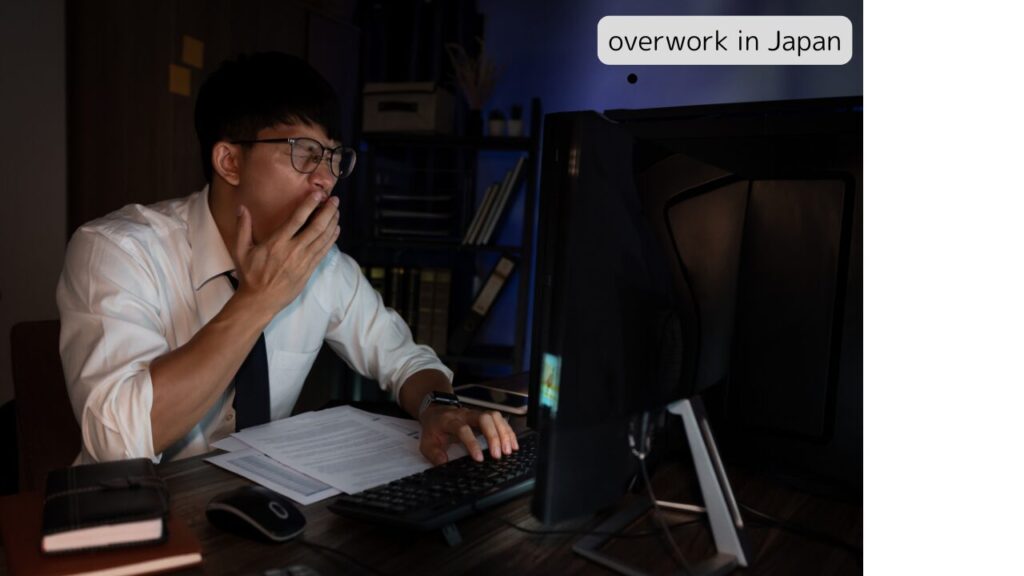A Cultural Look at Why Presence Sometimes Matters More Than Performance
A woman in her twenties once shared a quiet trick she picked up at her company:
“When I leave the office, I make sure to leave my computer on. That way, it looks like I’m still around.”
Not everyone does this, of course. But the fact that strategies like this even exist speaks volumes about the invisible pressure in many Japanese offices — where looking busy can sometimes feel more important than being productive.
📊 Japan’s Curious Devotion to Effort, By the Numbers
According to OECD data, Japanese workers log around 1,903 hours annually — significantly more than many of their Western counterparts. Yet Japan ranks just 29th among 38 OECD countries in productivity, with hourly output averaging $56.80.
Take Sweden, for instance: workers there clock in about 1,444 hours a year, nearly 460 hours less than Japan. Yet not only is their productivity higher, taking five weeks of paid vacation annually is standard — and in the summer, it’s normal to take three or four weeks off in one go. In fact, taking time off is often seen as a sign of good self-management.
In contrast, in many Japanese offices, even a five-day vacation can raise eyebrows. Paid leave exists in theory, but using it often involves a subtle negotiation with supervisors and colleagues, where reading the room is just as important as following the rules.
🧠 When Just Sitting at Your Desk Feels Safer Than Going Home
There’s a saying in some offices: the real work begins after 6 p.m.
A male employee shared:
“Once it hits 6, there’s this unspoken standoff. Who’s going to be the first to leave their desk? No one wants to move.”
Of course, not every company operates like this. But in workplaces where the equation “longer hours = harder worker” still holds sway, staying seated — even if you’re just browsing emails — can feel like a necessary performance.
💼 Paid Leave That’s Technically Available — But Culturally Difficult
I once tried to request three days of paid leave. The response was polite, but the undertone was unmistakable:
“Next week? For a trip? At this time of year…?”
I was allowed to go, technically. But the awkwardness lingered. Even though I wasn’t breaking any rules, I still felt a strange kind of guilt.
A friend from Sweden once told me, “If you don’t take your vacation, people think you’re bad at managing your work-life balance.”
That cultural contrast says a lot. It’s not just about policies — it’s about what’s considered reasonable, responsible, and respectable behavior in the eyes of your peers.
🧩 Is Showing Effort Sometimes Valued More Than Delivering Results?
This doesn’t apply to all companies, but some Japanese workplaces seem to reward not just what you do, but how hard you appear to be trying.
You might spend hours crafting a minimalist, well-structured presentation — only to hear feedback like, “That’s it? It’s only five slides.”
Late-night emails and visible overtime don’t guarantee praise, but they can shape impressions. Staying late can still create the perception of commitment, even when the extra time adds little value.
In such environments, effort — or more accurately, the appearance of effort — can sometimes eclipse effectiveness.

🔁 A New Generation, A New Set of Values
Still, change is on the horizon. Among younger generations, especially Gen Z, there’s a growing sense that unnecessary effort is inefficient, not admirable.
At some modern companies, leaving on time is the norm — and people who stay too late may be seen as struggling to manage their workload.
Communication is shifting too. Tools like Slack, Notion, and asynchronous updates are replacing marathon meetings. The value is in results, not rituals.
That said, these changes aren’t universal. Many workplaces still operate under older norms, and generational or managerial disconnects remain common.
🏁 Final Thoughts: Redefining What It Means to Work Well
When appearances matter more than outcomes, it becomes harder to measure — and reward — true performance.
Yet Japanese values like harmony and consideration for others shouldn’t be discarded. The real challenge lies in distinguishing between meaningful effort and performative busyness.
Work culture isn’t just built on rules — it’s shaped by the air people breathe together every day.
If we can build environments where people are judged by what they accomplish, not how tired they look, maybe we’ll finally make space for both productivity and peace of mind.




